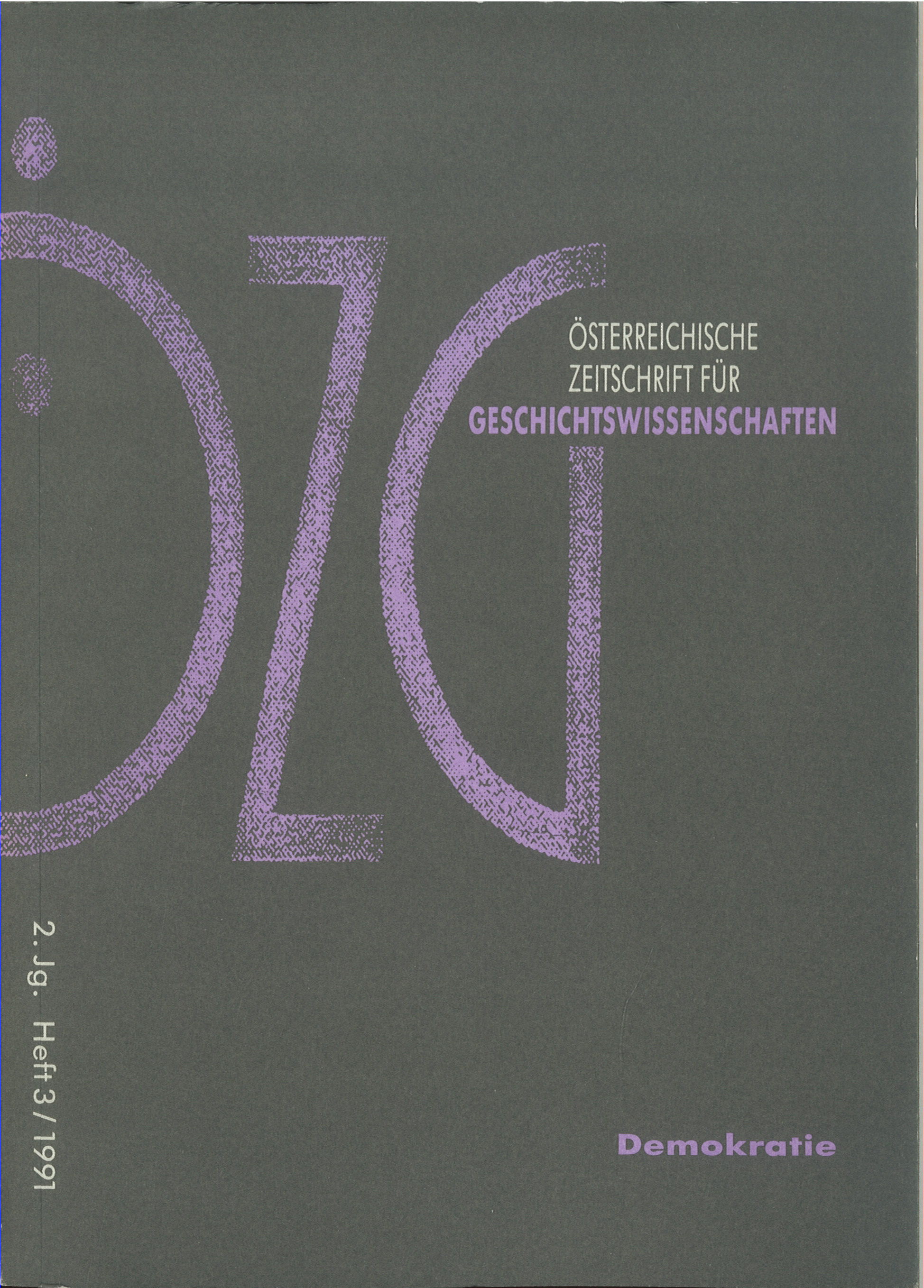Parliamentary Sovereignty, Popular Sovereignty, Formation of Consensus.
Anmerkungen zur englischen Revolution 1640-1649
DOI:
https://doi.org/10.25365/oezg-1991-2-3-2Abstract
This paper attempts to delineate the development of constitutional ideas from pre-revolutionary theories of consensus to parliamentary sovereignty and, finally, the challenge of popular sovereignty during the English Revolution 1640-1660. Before 1641, there existed at least a semantic consensus on basic constitutional issues. Both, parliamentary and royalist proclamations praised the ancient constitution as a divinely ordained „mixed monarchy“. However, the use of similar metaphors in constitutional theory did not correspond to harmony in practical politics concerning the constitution. Only after the beginning of the civil war, Henry Parker and others clearly proclaimed parliamentary sovereignty as a theoretical weapon in order to justify the revolutionary changes which had occurred. Later on, however, the Levellers challenged the theory of parliamentary sovereignty as a tactical compromise between „mixed monarchy“ and popular sovereignty.


